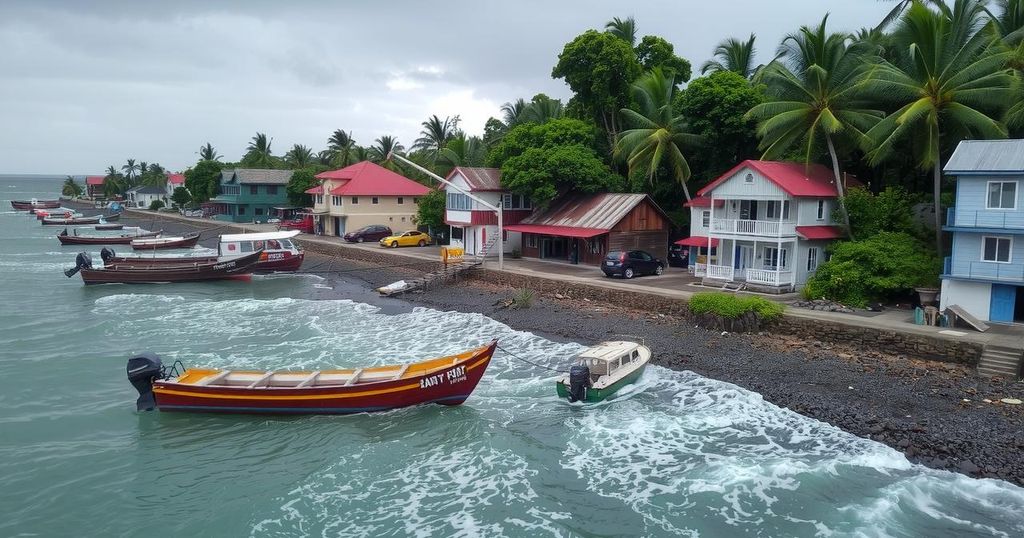Comoros Declares National Mourning Following Cyclone Chido’s Devastation

Comoros has declared a week of national mourning for victims of Cyclone Chido, which devastated Mayotte, sparking fears of hundreds of deaths. The cyclone was the worst in 90 years and has caused widespread destruction, displacing many and leaving communities without essential services. Emergency response efforts from France are underway, but the situation remains critical, particularly in shantytowns housing vulnerable populations.
On Monday, the government of Comoros declared a week of national mourning following the devastation caused by Cyclone Chido, which severely impacted the nearby island of Mayotte. President Azali Assoumani announced that the mourning period will extend until Sunday, in remembrance of the lives lost and the extensive damage sustained across the region. Eyewitness accounts reveal staggering destruction in informal settlements, with authorities fearing that hundreds of casualties may be unaccounted for, particularly among the vulnerable population of Comorans residing in Mayotte.
Cyclone Chido, classified as a category four storm, unleashed winds exceeding 220 kilometers per hour, marking it as the most severe cyclone to strike Mayotte in nearly a century. The aftermath has led to a displacement crisis, raising urgent concerns regarding access to basic necessities, including food and clean water. In response, France deployed military resources to provide aid and clear infrastructure obstructed by fallen trees, aiming to facilitate the delivery of urgently needed supplies. A local senator voiced her alarm over the dire conditions faced by those seeking refuge, highlighting the lack of adequate provisions in shelters.
The island of Mayotte, which has the highest density of population in the European Union, has long been grappling with issues related to immigration and housing. Estimates suggest that irregular migration may significantly inflate the local population, complicating rescue and aid efforts in the wake of the cyclone. As the death toll remains uncertain, the local Prefect stated that the numbers could reach into the hundreds, if not thousands, as many victims might not be formally identified, particularly given the cultural practice of prompt burial in the region.
Emergency response teams have mobilized from France and Reunion to provide assistance, but logistical challenges present substantial hurdles in delivering help efficiently. This natural disaster has underscored the socioeconomic vulnerabilities of Mayotte, exacerbated by the island’s impoverished conditions and the strain of a large, undocumented migrant population.
The recent declaration of national mourning in Comoros comes in the wake of Cyclone Chido’s catastrophic impact on Mayotte, an island with historical ties as a part of the Comorian archipelago. Following its independence in the 1970s, Mayotte opted to remain a French territory. The cyclone, classified as a severe category four storm, has resulted in extensive loss of life and infrastructure, particularly in marginalized areas where many Comorans reside. The crisis has highlighted vulnerabilities relating to immigration patterns, as many Comorans seek better opportunities in Mayotte, thus complicating relief efforts in times of disaster.
In summary, the week of national mourning in Comoros reflects the deep sorrow and loss experienced following Cyclone Chido’s devastation. The cyclone’s unprecedented severity necessitates an urgent humanitarian response, focused not only on immediate aid but also on addressing the long-term vulnerabilities inherent to the region. With many lives lost and significant challenges in recovery and rehabilitation, greater attention must be directed towards safeguarding and supporting communities at risk in both Comoros and Mayotte.
Original Source: www.arabnews.com







